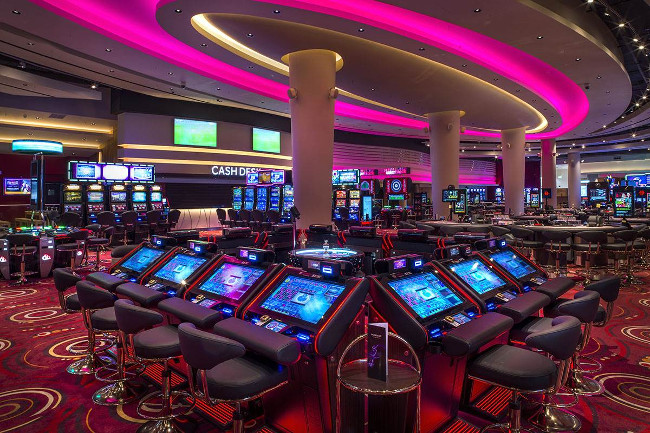
A environment of gambling games is rapidly evolving, driven by developments in technology that are transforming how participants engage with their cherished pastimes. From the classic brick-and-mortar venues to the online realm of internet-based gaming, the melding of cutting-edge techniques is producing stimulating new experiences for aficionados around the planet. As we look towards the future, it becomes apparent clear that the future of gambling will be shaped by augmented engagement, immersive graphics, and the use of data analytics to personalize gaming experiences.
In this dynamic environment, trends such as immersive reality, enhanced reality, and artificial intelligence are making significant advancements. These technologies not only enhance the aesthetic appeal of casino games but also amplify the overall player experience by making it more involving and adapted to individual tastes. As gaming companies adopt these new tech, gamblers can look forward to see a more thrilling and engaging experience into the world of casino gaming, where the options are limited only by the imagination.
Innovative Advancements in Gaming
The world of gaming is transforming quickly, driven by developments in tech that enhance the gaming experience. One of the most important advancements is the integration of virtual reality and augmented reality. These immersive environments let players to experience authentic casino environments from the safety of their homes. With virtual reality headsets and custom technology, gamers can interact with virtual dealers and other participants, making virtual gambling more exciting and interactive.
Another tech advancement is the implementation of distributed ledger technology in gaming. This distributed ledger technology guarantees openness and fairness in gameplay. By using blockchain, casinos can offer players with verifiable proof of integrity in the games, increasing faith in online gambling platforms. Additionally, blockchain allows for seamless payments with cryptocurrencies, giving players more flexibility and safety while playing their beloved games.
Machine learning is also important for the future of the gaming industry. AI programs are being used to study player behavior, providing personalized gambling experiences adapted to individual preferences. This leads to improved customer support, more accurate game suggestions, and improved security measures. As AI continues to evolve, it will likely transform the method players connect with gaming, producing a more dynamic and responsive gaming environment.
Effect of Virtual Reality on Gaming
The implementation of VR technology has changed the way users engage with gambling experiences. By immersing players in a three-dimensional environment, VR allows players to perceive as if they are actually in a tangible casino. This heightened sense of being not only boosts pleasure but also adds an aspect of social interaction, where players can enjoy games with others from across the globe in a common virtual space. GA179
With the option to access virtual casinos, players can pick from a wide array of games, including video slots, 21, and texas hold’em, all displayed in stunning detail. The realistic graphics and audio effects create an engaging atmosphere that replicates the thrill of a traditional casino. This level of immersion fosters a stronger emotional connection to the games, allowing players to immerse themselves in their gaming experience like never before.
Additionally, virtual reality can offer creative gameplay mechanics that are not possible in traditional settings. For example, VR can facilitate interactive tutorials, enabling new players to understand the rules and tactics in an interactive manner. Additionally, creators can develop unique game formats that leverage the capable capabilities of VR, offering innovative and thrilling experiences that appeal to both seasoned gamblers and newcomers alike.
The Role of AI in Game Development
Artificial intelligence is changing the landscape of casino game development by elevating both the experience for players and game design. With ML algorithms, developers can study player actions and likings, allowing for the creation of customized game experiences. This level of personalization can lead to higher engagement from players and retention, as players feel that the games are tailored to their specific likes and methods of play.
AI is also being utilized to enhance the game design process itself. By creating simulations of various play scenarios, developers can swiftly determine what elements players enjoy and which features do not. This method grounded in data simplifies development and enables studios to make faster innovations, as they can adapt their design strategies based on feedback in real-time. The incorporation of AI tools can result in the creation of more advanced and entertaining games that keep players returning.
Moreover, AI plays a crucial role in ensuring fair play and security within casino games. Sophisticated algorithms can spot patterns of dishonest behavior or unlawful conduct, thus maintaining the honesty of the games. With AI, casinos can adopt more robust security protocols, ensuring that both players and operators are protected. This does not just enhance confidence in the gambling environment but also fosters a better gaming ecosystem in general.
